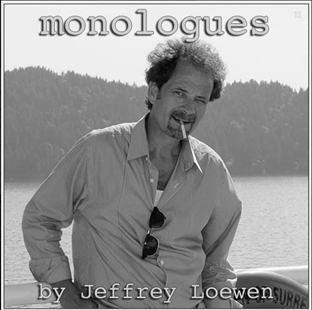
Image Credit: Contributed/Jeffrey Loewen
November 12, 2014 - 7:27 AM
In the southern Ontario of my youth in the Seventies, we were surrounded by reminders of war. Every little town, every larger city, had its monuments and memorials erected to commemorate the fallen, usually young men of British descent whose names, borne in stone, stared back at us, muted reminders of mass suffering too horrible to comprehend.
As students on field trips we would visit these monuments; and we, too, would try to remember past battles by wearing poppies and respectfully attending the laying of wreaths at our local cenotaphs each November 11th.
And yet, there was an element of ambivalence to the whole thing for myself and probably others as well.
The predominantly Brittanic casting of the mythology surrounding the Great War experience for Canadians was not all-inclusive. As one studied the origins of World War I and the participation of Britain’s dominion, Canada, in it, many of us felt alienated for a variety of reasons.
It’s complicated.
You see, not everyone is of British ancestry in this country, Canada. And in the Seventies a kid in school was hyper-aware of the two founding oppositional cultures that were subsumed into the British Commonwealth as the Dominion of Canada. The “two solitudes,” as the English and French came to be characterized, ever seemingly at each other’s throats, were nominally united at best. As the Canadian identity evolved, so too did French-speaking Quebecois nationalism; and on the horizon there were tangible fears that the whole country might fly apart.
Add to this the personal histories of many immigrants to Canada from non-British countries and colonies and the ambivalence towards national mythologies grew.
There is no denying the tremendous sacrifice made by the nearly 600,000 Canadians who served in the Great War. In western Canada in particular at that time, where economic conditions were grim and job opportunities scarce, the tsunami of young men departing to participate on European battlefields left many towns and villages nearly bereft of menfolk. Many of these soldiers were killed abroad; others returned and found themselves much changed and not necessarily eager to return to their former homes where those awaiting them could not possibly understand the horrors that they had perpetrated or witnessed.
The names of the dead remain in these western towns too, muted reminders. They’re all over the many towns and villages of our provincial Interior. And so too are some of their ghosts.
At the outset of Canada’s involvement in the Great War, it was understandable that the majority of the enthusiasm to participate would come from folks of British ancestry. In fact fully two thirds of our first contingent came from former Brits. But the French were not as eager to enlist, for a variety of reasons with historical bases too complex to enumerate here. Suffice to say, the Canadian government of the time did not, initially at least, allow French-speaking battalions to form at all.
Others too, were barred from participation initially: those whose ancestry derived from countries that were Britain’s foes in that “war to end all wars.” Also blacks, and Canada’s indigenous peoples -- not wanted on the voyage.
But as the war wore on, and enlistments trickled to a meagre flow, conscription would open wide the gates to any and all who would participate.
Of course, as a Mennonite kid growing up in a country rich with nation-building mythologies, I was used to looking askance at examples of nationalistic fervour. We’d seen enough of its effects in Stalinist Russia and Nazi-fied Germany.
We were a people who followed the injunction of Jesus to be “in the World but not of the World.” And paramount among the Mennonite virtues and theology was an official stance of passive non-resistance, pacifism. “Thou shalt not kill” was considered an injunction especially profound in the face of a country hell-bent on participating in war. Historically, this was an injunction followed by Quakers and Jehovah’s Witnesses as well.
And it marked its adherents as “cowards” and “yellow” amongst the more stupidly-patriotic and war-enthusiastic of fellow-Canadians.
Of course, not all Mennonites followed the pacifist practice. Some even enlisted, particularly during the Second World War and later as Mennonites became fully assimilated into the largely Brittanic mores of their adopted country. But never without profound misgivings and an inherent sense of divided conscience.
And so I too continue the tradition of ambivalence. But it’s with an ever-watchful eye to the tides that buffet against us all, the forces that have kept war a common current virtually uninterrupted since the mid-1930s.
I continue to hate war. I continue to believe that diplomacy is the only answer to solving geo-political conflict. I continue to believe that the causes of war are complex and that no man or woman should feel pressure to take up the gun (or the comfy controls of drones thousands of miles away) in the defense of any nation state. It’s horrible and signals a failure of diplomacy or worse.
In the end, we are left to commemorate the dead. And we can’t help but remember them on an almost daily basis as more news comes home to haunt us of the passing of the latest wave of young men and women willing to die for our country and our allies.
The very least we can do is remember. And to honour those still alive at war’s end with profound understanding and the necessity to sustain them when they return.
Our current government might heed these thoughts as well, at a time when so many of our veterans are homeless or mad in the streets of our cities. These are our forgotten, walking dead; and until we take them into our care, our bellicose posturings are just more mythologizing.
— Having lost his 2,500 volume library in the Okanagan Mountain Park Fire, Jeffrey is beginning to fill the void by writing his own. Reach him at jeff.loewen(at)gmail.com
News from © iNFOnews, 2014